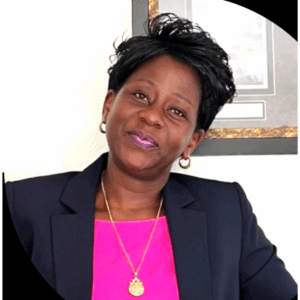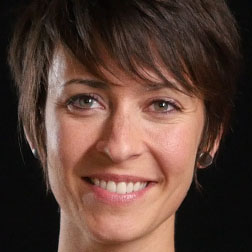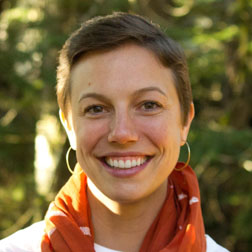The opportunity for me to participate in Next Stage was very serendipitous. I was still riding the high of submitting my dissertation while, at the same time, experiencing a kind of muted postdoctoral PTSD.
Fresh off the doctoral research mill, I wasn’t looking for another shiny bandwagon to hop onto. I hadn’t even started thinking about what was next for me, and here I was at a fork in my life again.
But I said yes.
As a naturally cautious person, I like to feel like my body, mind, and spirit align before launching into anything. But as I’ve learned, life is like Japan’s bullet train. It doesn’t allow us eternity for all the pieces of our lives to align before we hop on.
And despite my discombobulated state, I learned some things from the Next Stage Facilitation intensive that impacted me in many ways.
Preparation
The program description “Next Stage Facilitation develops leaders like you into more naturally spontaneous, confident, and insightful facilitators” sounded like what I needed to gain some orientation in my postdoc liminal space.
I have undertaken several trainings that have impacted my facilitation throughout my career, but something about this particular experience supported where I am in my career and where I hope to go.
Behind the Next Stage approach was the promise to complement my recent exploration of human development related to the migration and integration of highly educated immigrant women.
The program offered another layer for navigating socioeconomic and cultural contexts in human interactions – all through a developmental lens.
I wished I had more time to prepare and read about how the training complemented or challenged my existing life paradigms and how to manage those spaces. Nonetheless, I made the best of it, even when I seemed to be playing catch up all through it – which brings me to the other things I learned.
Adapt and Calibrate
My second takeaway relates to my legal training, which has been a significant setting for most of my facilitation skills and experiences throughout my career.
Following the letter of the law engenders a predictability that is admirable and even desirable under certain conditions. However, it doesn’t always work well in human interactions.
Although I haven’t practiced law for some time, it has heavily conditioned my facilitation moves. I relish process, predictability, transparency, equity, hearing all voices, justice, adhering to ground rules, and following a pre-mapped path. This awareness of my preconditioning surfaced as I encountered the flex and flow approach.
In our first learning session, when Cléo asked for a volunteer to practice ‘flex and flow’ in facilitation, I surprised myself when I offered to do it.
Several internal conversations were simultaneously going on in my brain. Do I even know what I am supposed to do? I have facilitated many conversations before, but can I do it? Do I even want to do it now?
In the last couple of years, I have experienced some unsavory interactions in the workplace that caused me to dial down my fiery red energy as a self-protective measure. I have coded that period of self-protection as “learning how to be a follower” to relearn how to lead.
But deep down, I know it’s my way of saying I don’t trust the embodiment of my red energy in group settings.
The facilitative process that day was like jazz between my desire to lead and follow simultaneously. I was ill at ease because I was out of practice facilitating conversations at the strategic levels I knew I was capable of. I could feel it in my voice.
Although I felt an emotional connection with participants who shared more vulnerably, I noticed how I gravitated to the neutral space of marshaling those shared experiences towards a collective experience. At that moment, I felt a tension between wanting to reach out through the screen to the people who shared emotional experiences – or to maintain a neutral stance as a facilitator, and moving the conversation to a more impersonal space.
What did the people in the conversation expect of me? Would I be treading dangerous terrain by dropping the straight jacket and reaching for the heart? Would that even be welcome for everyone, including those who shared more tender experiences?
Indeed, as Cléo aptly shared in her feedback:
There were opportunities to join and reflect with participants when they were expressing tenderness or a certain emotionality. You did a good job in capturing the words they were showing, the content, the ‘It’. Given your desire to be more of a follower, you might practice listening to their ‘I’ and joining them in the relational ‘We’.
Therein lies the tension between the facilitative moves shaped by my legal training, and what Next Stage Facilitation offers. The latter allows me to be a more agile facilitator. To take in more perspectives and give myself permission to step out of the process. To follow the energy of the conversation instead of sticking to structure or a predetermined path or outcome.
Another piece of resonant feedback I heard was that I should allow more of myself to be seen and not hide behind politeness. That’s an area I hope to recover with the proper training so I can get out of hiding to inhabit a place where confidence, spontaneity, and insight can co-exist.
Mirror, Mirror on the Wall
The Next Stage practice of sameness and difference helped me to understand that both have a place in our lives – and the outcome depends on our intentions. The experience opened my eyes to possibilities that I previously did not purposefully attend to. It has expanded my ability to take a perspective on myself as I interact with others.
The program philosophy emphasizes that while there is no silver bullet for facilitative genius, intention is a dependable asset in a facilitator’s toolkit. I like the purposefulness in inquiring about what I, as the facilitator, hope for in an interaction.
Since completing Next Stage, I have noticed an increased ability to assess the impact of my facilitation against my intention in real time, and to change course to create more space for “WE.”
I can see if I am expanding or contracting the space of mutually beneficial possibilities in my interactions with others. And I have a more sensitive and compassionate lens through which to evaluate the interactions around me.
I’ve been thinking about the many opportunities I have missed in my interactions within my close family circle, particularly with my youngest son, who turned 18 in March. If I knew back when he was starting his teenage career what I know now, I would have made more intentional deposits into our relational bank accounts. I would have approached the dance between sameness and difference in a more purposeful way to move us closer together, especially as goes to college and enters into a new season of life.
I have become very aware of how divided our world is in the wake of the political environment ushered in by the current United States administration. There is a heightened tendency to look at life from the poles we choose to latch onto through a blacked out lens. I wonder how many opportunities are lost because we have not mastered the art of leaning into our interactions with curiosity, humility, and compassion!
Which makes me think, it’s about time once again to shuffle my facilitation toolkit to meet the emerging energy of the season.
Sarah Kitonsa was born and raised in Uganda where she worked as a human rights lawyer before moving to the United States with her family. She uses her doctoral training in human development together with her life and work experiences to support research, policy advocacy, organizational consulting and coaching to create positive immigrant integration experiences. Connect with Sarah on LinkedIn.



